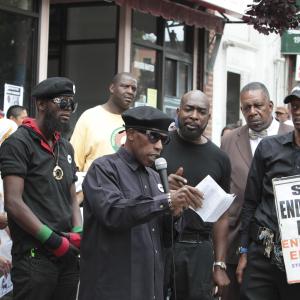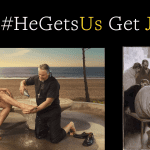This week, I happened to read two different articles in my news feed about how to be happy. They both said the same thing. And it wasn’t anything groundbreaking. It was to be a part of healthy relationships and contribute to something greater than yourself. Having a cause that people believe is important will make them happy.
The Cause of Advocacy on Campus
As a university professor, I see how this is true among faculty and students. The secular university, especially in the humanities, pushes the idea of “advocacy.” The student and faculty want to “make the world a better place,” and so a significant part of their education (especially in the humanities) is about choosing a social cause and “advocating” for it.
These social causes are almost always economic (the other is sexual expression). The idea is that differing economic outcomes must mean injustice. Sexism and racism are at the heart of any differences. And so the students and faculty confidently take up the cause of advocating for those who are part of the intersectionality matrix and against those with economic privilege.
One of the reasons that Jordan Peterson has been so influential is that he has successfully shown that there are other possible causes for economic differences, including free will. Similarly, Aldous Huxley in “Brave New World” illustrates how perfect economic equity does not actually lead to happiness or to our highest good. I have yet to hear one of these “advocates” talk about the highest good.
The Black Panther’s Vision of “The Good”
How do you know if you are “advocating” for a just cause? How do you know if you are contributing to what is good? All of that sets the context for an event at my university. We will be having an event with the Black Panthers. I have a link to information about it at my substack here. The Black Panthers stated their goals in their 10-Point Program. You can read about it here, and it is easy to search for on the internet.
When you read the 10-Points Program, you see that it revolves around the dialectic of black and white. The first point is the desire to freedom. That is excellent. We should all want to be responsible for ourselves. But it specifies freedom for Black people. Compare this with the Declaration of Independence, which is quoted at the end of the 10-Point Program, which asks for freedom for all people because they are equal.
It was arguments like that found in the Declaration of Independence that were the foundation for the emancipation movement and the end of slavery, and then the Civil Rights Movement. Martin Luther King appealed to God’s natural law and scripture to make his case that we are all equal and should be treated that way. You can read his argument here.
What stands out more than their first point is what we read in the second and fourth points. It is that property should be confiscated from white business owners and landlords. The claim is that if these persons are acting unjustly, then their property should be taken and given to others. What if a non-white businessman or landlord acts unjustly? That doesn’t fit the dialect of black and white. Do you see here the root of much of the current social justice movement and DEI at the secular university?

Some questions immediately come to mind. Who decides if the white businessman or landlord has acted unjustly? Point 9 says that they do not trust the jury system. And point 3 is about how the whole system of government is racist. But it can’t be themselves who decide what is just and unjust as this would perpetuate the problem of people deciding in their own favor. That is why we have courts and law so that people must present their case and it can be tested for its merits.
But what if the civil law and the court system are fatally flawed? What if you cannot trust it to work for justice. This has happened throughout history. And it is here that the communist solution of the Black Panthers can be compared with the solution of Martin Luther King. The 10-Point program relies on the idea of confiscating the property of others and redistributing it. It is the use of force against the other. It is a merely economic solution. And we have seen that solution tried in the 20th century in countries like the Soviet Union. You can read Aleksandr Solzhenitsyn on what it is like to live in such a country.
What if you successfully take the property of another by force? What if this vastly improves your economic situation. You are now able to live a more comfortable life. Yet, there is no connection between money, comfort, and virtue, unless it is a negative connection. Money cannot buy you the highest good. Money cannot get you understanding or wisdom. In Psalm 73, Asaph struggles with envy of the rich. You can read his conclusion here.
MLK’s Vision versus The Black Panthers
By contrast, Martin Luther King directed our attention to God and God’s law. Human law can and will fail us. But God and God’s law will not. And so even if we are finally let down by human law, and there is no recourse, we know that our highest good is not economic. Our highest good is to love God. And we can do that even in hard economic circumstances. Martin Luther King wrote about this while in prison. The most influential English book besides the KJV Bible (Pilgrim’s Progress) was written by Bunyan while in prison. The same was true for Solzhenitsyn. You can see his speech at Harvard here. On a side note, what does he recommend to become a better person? Suffering.
It is natural and important to want to be a part of a movement and to contribute to something greater than oneself. But it is also important to make sure the movement you are a part of correctly identifies the highest good. The current DEI movement and debate about economic privilege and redistribution do not help us with this much larger problem. What is our highest good? Above all, seek that. Martin Luther King’s Letter is a good place to start thinking about God and God’s law.











